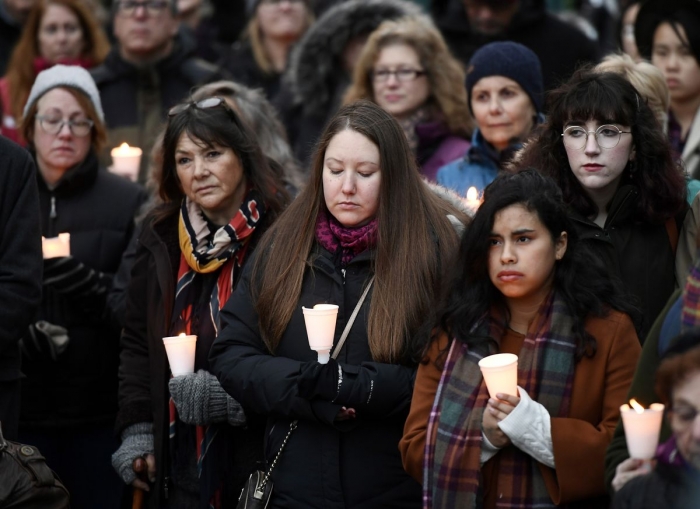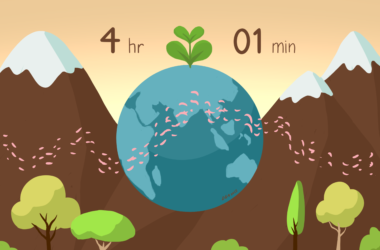Once again, the world stopped to mourn American mass shooting victims. On Oct. 24, a white supremacist killed a black couple in a supermarket in Louisville, Kentucky. On Oct. 27, a white supremacist killed 11 people in a synagogue during a Shabbat service because they were Jewish. On Nov. 3, a man killed two women in a yoga studio in Tallahassee, Florida. Words cannot describe the heartbreak I feel every time this happens, and it happens too often. These murders do not exist in isolation, but instead belong to a long tradition of gun violence, radicalization, and bigotry in American history and politics. As an American living in Canada, I feel some level of separation from this trauma. In a time when a horrendous amount of horrific news comes out the U.S., I am torn between burying my head in the sand and facing reality.
It’s a little easier to avoid American news in Canada. However, crossing the border is a privilege that few enjoy. I’m lucky to be at McGill and to be a white, middle-class student who doesn’t live under the threat of violence, deportation, or bigotry. It would be much simpler for me to keep my head down, do my schoolwork, and pretend that I don’t care about what happens in the United States. I know people who don’t follow the news and choose to ignore what’s happening at home. But, when I try and push the American news cycle aside, it feels like I’m abandoning my family and friends back home who are constantly inundated with stories of mass shootings, imprisoned children, voter suppression, or any number of grim reports churned out every day. Ignoring current events—no matter how disheartening—would be shirking my responsibility as a citizen and a member of the electorate. So, when my mom asks me, every time she calls, if I’m keeping up with the news, I tell her that I have to. I’m privileged to be a citizen, to be able to vote, to study and learn about the world around me, and I refuse to squander that opportunity.
Still, it’s hard to pay attention to current events due to the very real possibility that someone I love could be a victim of gun violence. This December will mark the 26th anniversary of the mass shooting at Bard College in Great Barrington, Massachusetts, only 25 kilometres away from where I grew up. My niece just started preschool, and sometimes I can’t help but think about Santa Fe, Sandy Hook, and Parkland. I don’t know how fast I could get home if something happened.
There’s nothing for me to do but wade through gut-wrenching news. The American student group Democrats Abroad is helpful in providing a forum where fellow progressives can talk about current events. Somehow, it toes the line between commiserating and deliberating. It’s a comfort to have other people who are equally interested in what is happening at home and who share similar frustration and despair about U.S. news. In a similar way, the March for Our Lives protest on Mar. 24 was an incredibly cathartic show of support and sympathy for the people who live under the threat of violence every day. The best way to cope is to stay engaged and fight from afar through organizations like Democrats Abroad. If I can’t be physically present with my friends and family amidst the chaos back home, at least I can be there in spirit.









